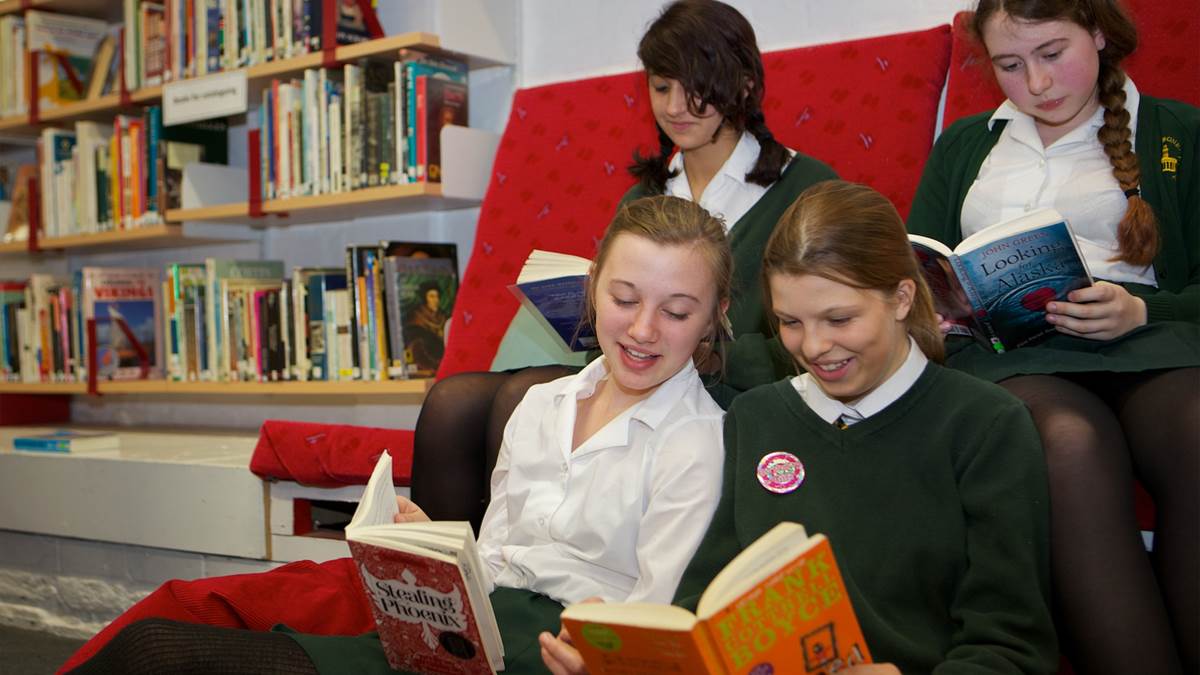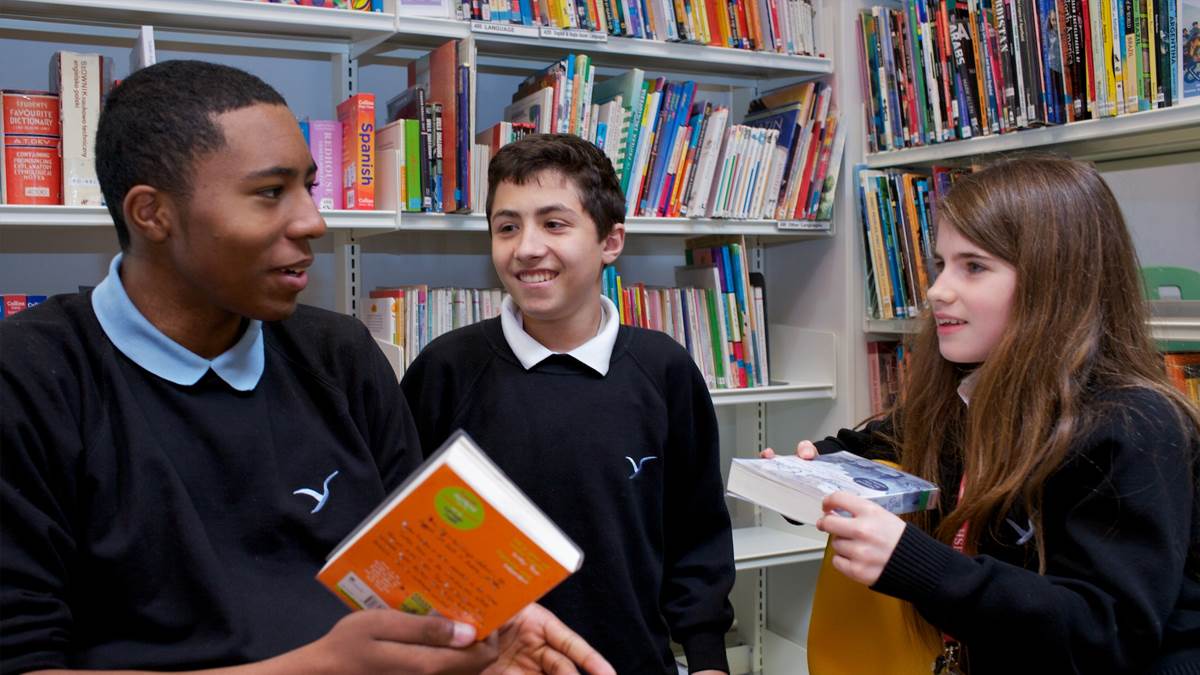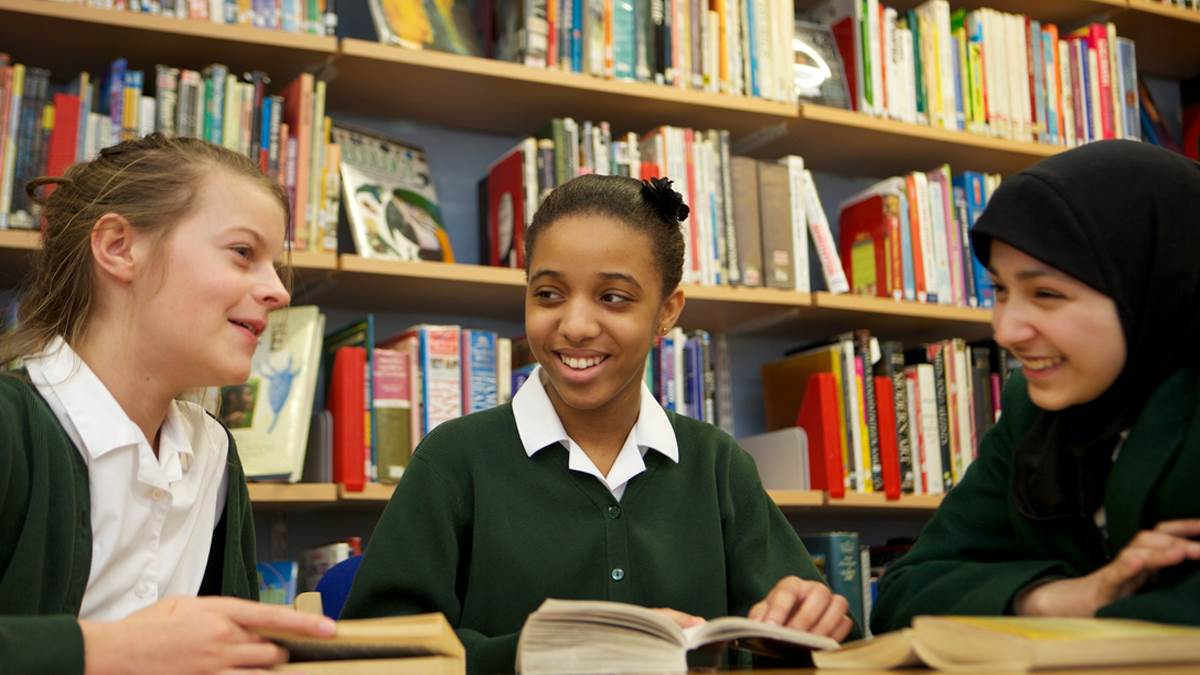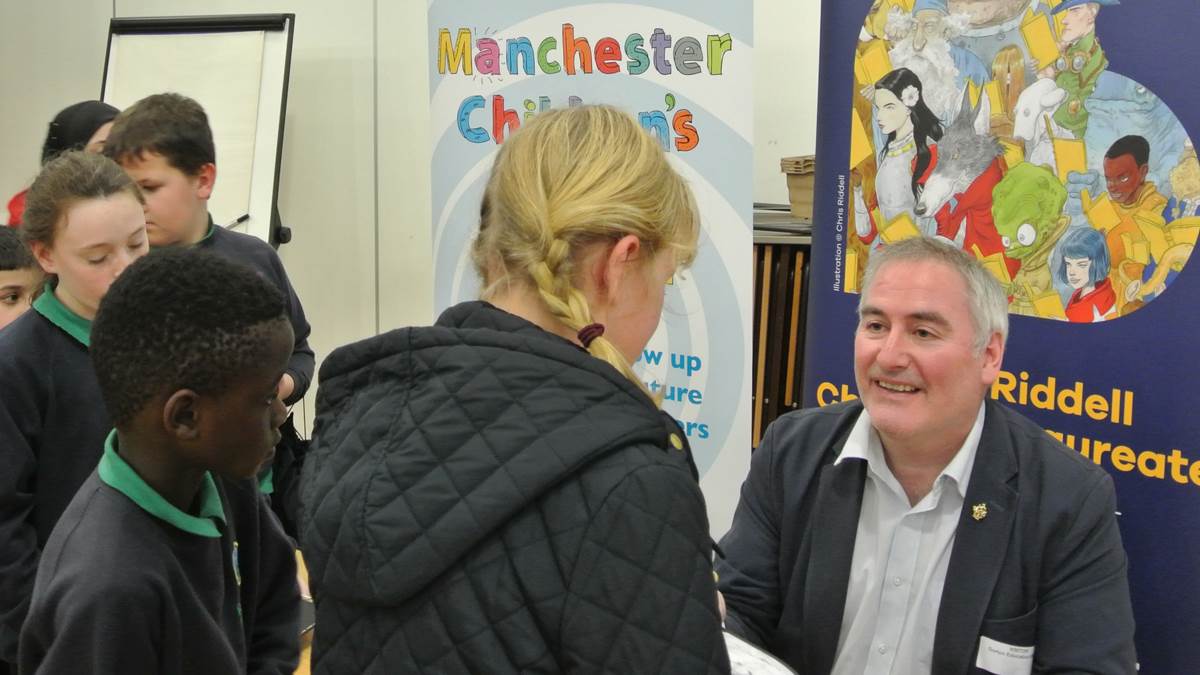Teacher top tips: how to get every child reading for pleasure
Published on: 06 October 2017
School librarians and teachers from around the country have shared their favourite ways to help students love reading. Can you try a few at your school?

Reading should be fun – not just a compulsory part of the curriculum. Unless it’s something that excites children, they’re unlikely to become an eager reader for life.
That’s why we are thrilled that so many teachers at our school events tell us how they encourage their pupils to pick up a book.
Each idea is brilliant. And now they’re all here in one handy guide…
1. Start a book club
Read a book or just a chapter at each get-together. Arrange the club around different genres or encourage students to pick the next read.
As well as book chit-chat, try other reading-related activities: from designing book jackets or bookmarks to creating a film trailer. Make it all extra exciting by issuing tickets or invitations and providing food and drink.
If you don’t think a regular session will work, how about a one-off special event – such as a breakfast club or an afternoon tea?

2. Theme reading activities around the time of year
Here are just a few ideas:
- Valentines: try speed dating with books, ask students to swap ‘unloved’ books
- Sport events: coincide sporty books with the Olympics or World Cup
- Halloween: have a spooky sleepover with pyjamas, torches, lights out, and reading scary stories aloud
- Reading round the world: use Chinese New Year, Eid, etc, to promote translated books and choices from other cultures
- National and local celebration days: check out our children’s book calendar to plan for events such as World Book Day, Children’s Book Week, Roald Dahl Day, and so on
3. Encourage book choice
Help students find the right book for them with these ideas:
- Have a lucky dip: wrap up books in in brown paper and pass around
- Get peers to recommend books: promote student reviews and pin these up on the wall, place ‘student choice’ stickers on chosen books
- Host book fairs or a visit to a bookshop: let students have a look at the new stock
- Shadow book awards: for instance, read the Carnegie shortlist and have a bit of a debate – maybe even vote for the class favourite; participate in local book awards or festivals
- Partner with local library services: pay a visit to the local library and support your students to become members
- Assign a ‘Book Doctor’: students can make an appointment to be prescribed a new book based on their interests
- Create fun book displays: perhaps highlight recent films based on books, an ‘If you liked reading that, you might enjoy reading this…’ poster, or a list like ‘16 books to read before you’re 16’…

4. Turn it into a competition
Sometimes you just need a little incentive to make books the talk of the classroom…
- Host a bookish quiz
- Create a library treasure hunt
- Hold a ‘Battle of the readers’: boys versus girls or year groups/classes competing against each other – perhaps to read the most books or write the most book reviews
- Set up a photo competition: such as photos of pets reading or people reading in funny or “extreme” places and situations!
5. Make reading a fun part of the timetable
For instance:
- Schedule in DEAR (Drop Everything and Read): this can be dedicated reading time that requires no homework or revision, but is all about free choice
- Hand out reading diaries: these can be a fun way to keep track of all the books that students get through
6. Consider an author visit
Sometimes it is easier to work with other local schools to make this more affordable and reach even wider audiences.
For instance, the Swindon Youth Festival of Literature involved 11 secondary schools and 40+ primary schools. They ended up with an excellent programme of events, plus a competition and celebration event, with the local mayor and press involved. You can hear more about this if you come to our Portsmouth Key Stage 3 event…

7. Make reading part of school life
- Hold reading assemblies: either student or staff-led
- Highlight reading-related news: could you place bookish content in your school newsletter/magazine/website/social media accounts?
- Involve parents and carers: have suggested reading lists, available for parents each year
8. Involve all the staff
Reading isn’t just for English teachers – see if you can get everyone to join in the fun!
- Put up ‘shelfies’: guess which bookshelf belongs to which staff member
- Stick up photos of staff reading their favourite books
- See what everyone is ‘Currently reading’: get staff to put it on their email signatures or display on their classroom doors
- Encourage cross-curricular reading: each department has a ‘book wall’ display with suggested reading around their subject
9. Don’t forget the reluctant or struggling readers
Perhaps ask older students to act as reading buddies for younger students.
Since role models are so important, you could also ask men (dads, staff members, police officers, local footballers) to read with boys, who are more likely to be reluctant readers.
Let us know how you get on! And if you have an idea of your own, tell us what it is #StartTheStory.
Topics: 6-8 years, 9-11 years, 12+, Tools for teachers, KS1, KS2, KS3, Primary, Secondary, Features, Teacher tips





